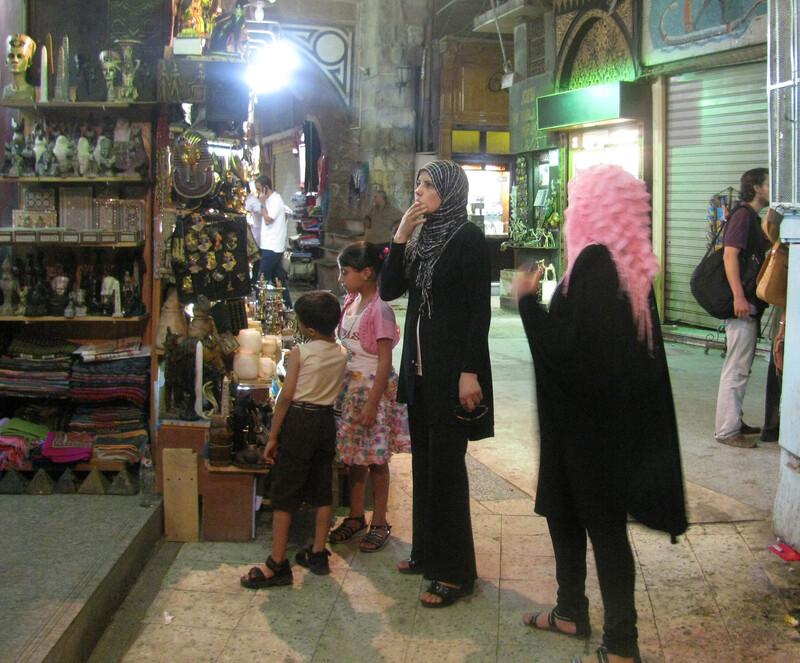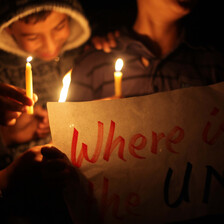The Electronic Intifada Cairo 26 July 2012

Rami Almeghari’s family in Cairo.
The Electronic Intifada“Wow! We have a non-stop electricity supply!” my six-year-old son Mohammad expressed in amazement upon our recent arrival in Cairo.
It was a source of joy to see him smiling and clapping loudly at the end of a four-hour drive. I had been without my family in Cairo for the previous three weeks. My relentless efforts to bring my four children — Munir, Nadine, Aseel and Mohammad — here from Gaza, along with their mother, Umm Munir, have finally proven successful.
I had sent Umm Munir back to the children a few weeks ago, hoping that she would return with all our family. Umm Munir is unwell. She is scheduled to have some medical check-ups in Cairo soon. This is perhaps the fifth time this year that my wife and I have had to travel here for her treatment.
I was anxious that my children would not be left without their parents for a long period of time during the summer. The schools close for three months in Gaza. It can be a very difficult time, especially with the high temperatures and lengthy power cuts.
The last few weeks have been dreadful. Gaza residents are required to apply for permission to travel a few weeks before their journey. So sending my wife back home came with the risk that she may have trouble returning. But I felt it was important for her to see our children.
“All right, Rami, I have to leave you now as the electricity is off and Munir needs some help to switch on the power generator, excuse me,” Umm Munir said by phone during one of the nights when she was back in Gaza.
No power during Ramadan
Electricity supply is one of our most pressing concerns in Gaza. Media reports indicate that lately, people have been deprived of electricity between eight and ten hours a day.
These days in Gaza, most people are celebrating the holy month of Ramadan. Ramadan for the 1.6 million Palestinians in Gaza is a month for family visits, with the focus on on two meals — sehr and iftar — between periods of fasting. Ramadan traditionally involves worshipping at mosques for prolonged hours. It is a time of year when we tend to watch a lot of television.
Ramadan this year comes amidst extraordinarily high temperatures and high levels of humidity.
The power cuts we suffer in Gaza are a direct consequence of the full economic blockade imposed by Israel in 2007. Yet there have been reports recently indicating that the electricity crisis had been resolved, with the help of the Egyptian authorities. The reports said that Egypt would increase the electricity supply to Gaza with a special power line running through Rafah, a city near Gaza’s border with Egypt.
With the crisis continuing, there are now reports that representatives of political parties in Gaza and an official from the Hamas administration will travel to Cairo for discussions with the Egyptian authorities.
We keep praying
With little electricity, Gazans keep praying in the mosque this Ramadan. We have no other choice.
My children have been given some respite. After their first iftar — the evening meal during Ramadan — in Cairo, we walked around al-Hussein mosque, which was built in 1154. My children marvelled at how there were so many lights in one place. They seldom see anything like this in Gaza.
There is an Arabic proverb that is widely known in Gaza: “A hungry person dreams of a piece of bread.”
In Gaza, we dream of the electricity needed for basic services. We have been dreaming for quite a few years now.
Rami Almeghari is a journalist and university lecturer based in the Gaza Strip.





